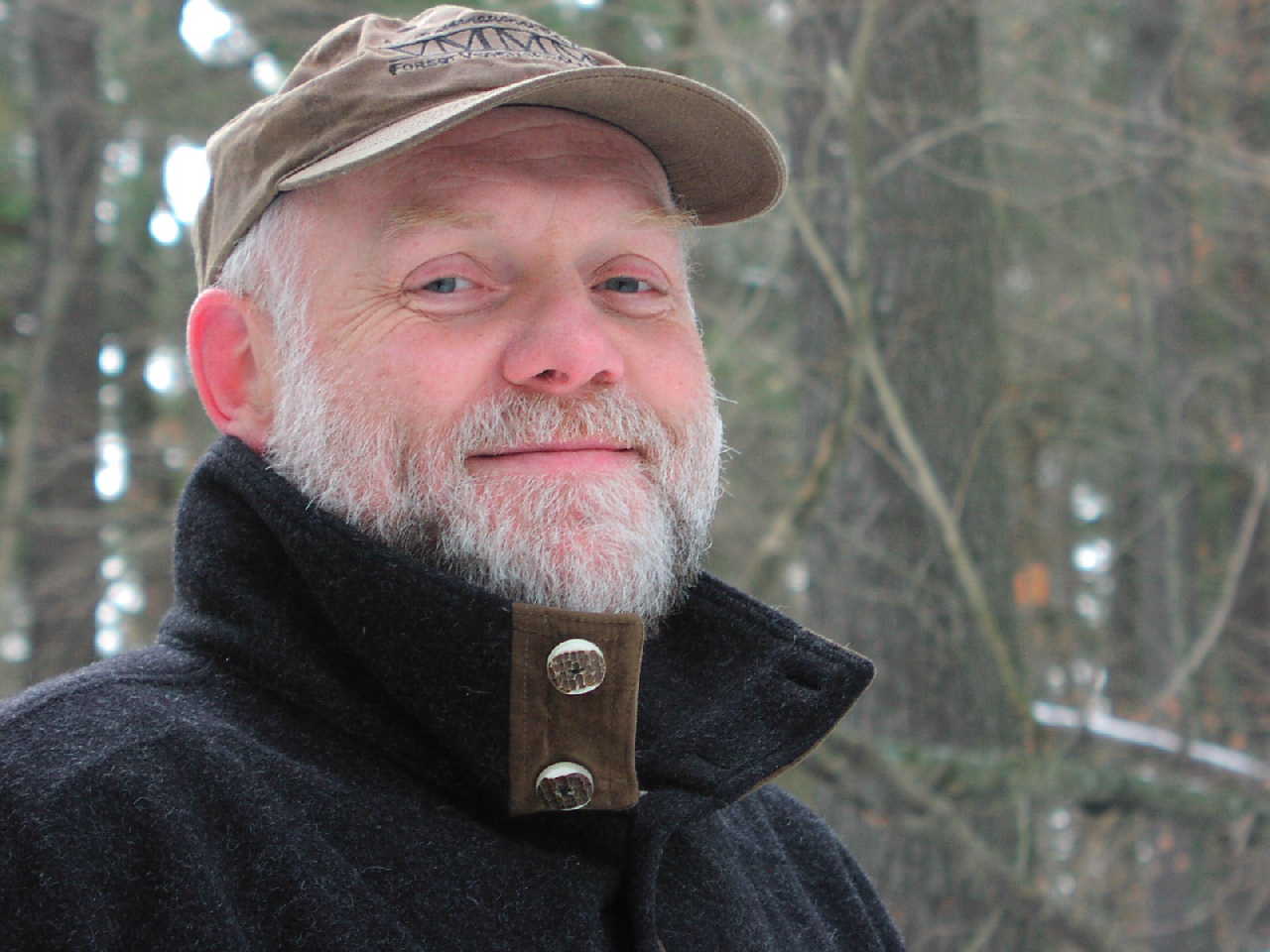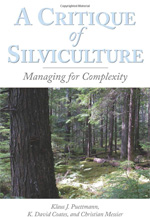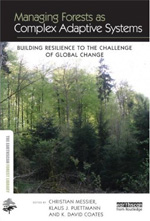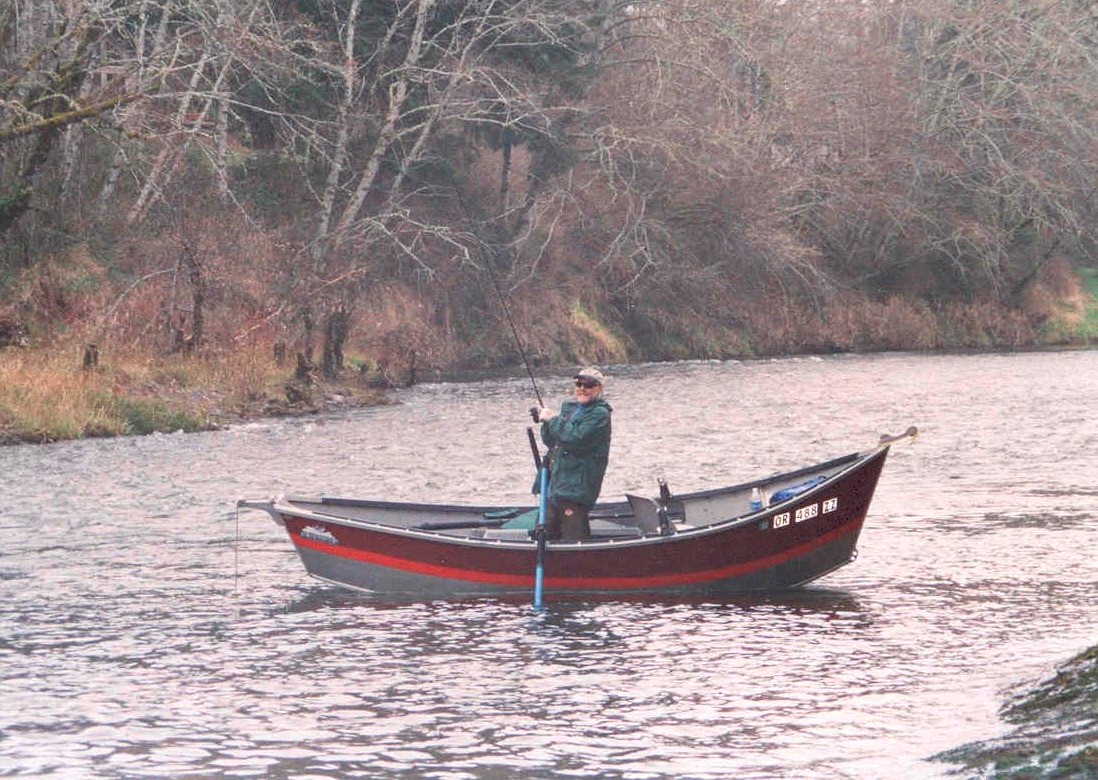 SILVICULTURE PROJECTS
SILVICULTURE PROJECTS
Klaus J. Puettmann
How can we design forestry practices that accommodate the variety of ecosystem functions and processes as well as the variety of management objectives?
As management options become more limited, what can we do to ensure that forests are able to adapt to changing environmental, biological, and social conditions?
What are the tradeoffs in terms of short- and long-term productivity when we emphasize adaptive capacity? How can we quantify these tradeoffs?
What flies are they biting on? These are questions that intrigue me. My colleagues Dave Coates, Christian Messier and I believe that managing forests as complex adaptive systems can be helpful in this context
(see A Critique of Silviculture). A closer look at complexity science provides opportunities to learn new ideas and approaches for managing forest ecosystems
(see Managing Forests as Complex Adaptive Systems). But there is still much to be learned, especially in terms of how concepts and findings from complexity science translate into management applications.
I have made this the focus of my research program. I have worked with various large-scale management experiments, set up by my predecessors and colleagues in the early 1990s
(e.g., the Young Stand Thinning and Diversity Study and the Density Management Study initiated by John Tappeiner, Brenda McComb and others).
These studies investigated various treatments to diversify stand structure and composition in even-aged, 30 to 70-year old Douglas-fir stands.
These studies have provided insights how various components of forests respond to increased spatial diversity, including tree regeneration, understory vegetation,
songbirds, and amphibians. These days I spend more time thinking about the role of adaptive capacity, how it is expressed in forests, how we can measure it,
and how we can manage forests to improve it. This and related work are my contributions to keeping silviculture up-to-date and relevant in a future driven by global change. It is a privilege to be working on the "cutting edge", to be involved in a powerful set of experiments, and to work with fine colleagues, students, and other professionals.
I need to specifically mention the support of the Edmund Hayes Professorship in Silviculture Alternatives, which I held from 2010 to 2023. Let’s strive to contribute to forest science so managers, politicians, and the public can make better informed decisions about forest management.


Order Critique of Silviculture
Reviews of the bookahora disponible en Castellano
also available in Persian
Order Managing Forests as Complex Adaptive Systems
 My recent and future work in this context deals with developing silvicultural treatments that maintain or encourage adaptive capacity,
so forest can respond to changes while providing income, timber, wildlife habitat, clean water, and other services.
My recent and future work in this context deals with developing silvicultural treatments that maintain or encourage adaptive capacity,
so forest can respond to changes while providing income, timber, wildlife habitat, clean water, and other services. 
Contact Information
Courses
Students
Publications
Employment
Contact Information
321 Richardson Hall
Department of Forest Ecosystems and Society
Corvallis, OR 97331
Phone: 541.737.8974
Fax: 541.737.1393
Email
Back to TOP
Courses
FES 240 Forest Biology
FS 533 Fundamentals of Silviculture (not taught at this time)
FS 543 Advanced Silviculture: Managing forest as complex adaptive system
FOR441 Silviculture Principles
SNR 531 Sustainable Silviculture and Forest Certification
Students
Current Students
Anna Wemple, M.S.
David Heithaus, MNR
Past Students
Oregon State UniversityAnthony D'Amato, MS 2000-2002
Liane Davis (Beggs), MS 2002-2004
Robert Fahey, MS 2004-2006
Matthew Kluber, MS 2004-2007
Cheryl Bright, MF 2005-2007
Lori Kayes, PhD 2004-2009
Andy Neill, MS 2009-2012
Sveta Yegorova, MS 2009-2012
Kenny Ruzicka, PhD 2010-2014
Bryn Morgan, M.F. 2014-2016
Julian Geisel, M.S. 2014-2017
John Punches, PhD 2003-2017
Daniel Soto, PhD 2013-2017
Austin Himes, Ph.D. 2016 - 2019
Adam Bouche, M.S. 2017 - 2019
Neal Rhea, MNR 2020
Lewis Campbell, M.F. 2020 – 2022
Amanda Brackett, M.S. 2019 - 2022
Micah Schmidt, M.F. 2021 – 2023
University of Minnesota
Meredith Cornett, MS 1993-1996/PhD 1996-2000
Alaina Davis (Berger), MS 1994-1997
Erica Hahn (Johnson) , MS (Plan B) 1996-1997
Jada Jackson, MS (Plan B) 1996-1998
Michael Saunders, MS 1994-1998
Michael Counte, MS 1997-2000
Dominic Ackerman, MS (Plan B) 1995-2001
Melissa Arikian, MS 1997-2001
Bruce Moreira, MS (Plan B) 1999-2001
Jerry Krueger, PhD 1999-2002
Darren Blackford, MS 2000-2006
Back to TOP
Employment
No job openings at this time.Back to TOP